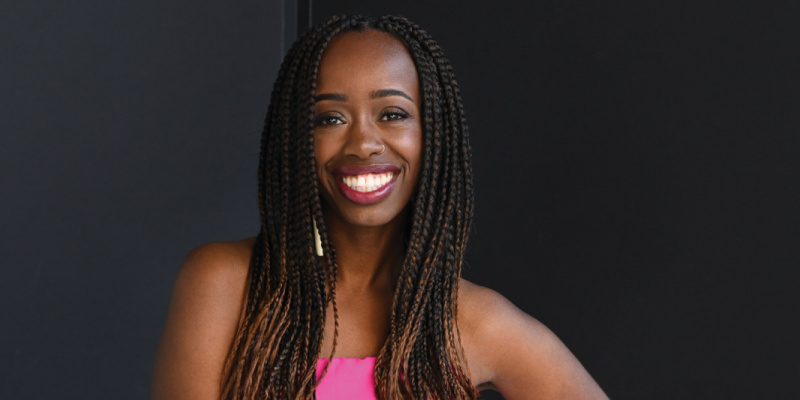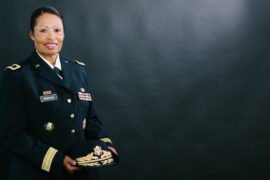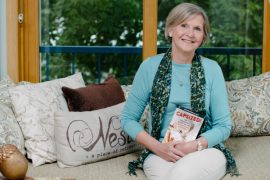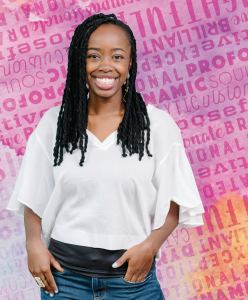By Shayna Mace | Photography by Marla Bergh
When faced with a confounding problem such as racial disparities in society or the lack of women in STEM fields, many of us might throw up our hands, wonder what we can do or donate to a cause-related nonprofit. Not Winnie Karanja — she tackles problems at the root cause.
While in a high school coding class, Karanja noticed she was one of only two female students (and the only female of color) in the class. After attending college abroad at The University of Wales for her undergraduate degree and the London School of Economics for her master’s degree, she returned to Madison. And the shortage of technology engineering learning opportunities for girls and students of color still gnawed at her.
“I knew if we were going to address these disparities in our county … you need to equip students with skill sets for high-wage employment. Because that aids how we address larger and related issues of housing, health care, food insecurity, et cetera — [and] this can broaden access to improved services,” explains Karanja.
At just 23 years old, she founded Maydm, a Madison-based nonprofit that provides girls and youth of color skill- based training in coding. To date, Maydm has served upwards of 2,000 students in grades six through 12. Because of her work with Maydm, Karanja was named one of Forbes’ 30 Under 30 Social Entrepreneurs in 2019.
She ran the nonprofit until 2021, when she decided to step away to pursue other ideas that had been percolating in her mind. Karanja moved to Houston to connect with the creative scene there and founded a company in summer of 2021 called Represented Collective. (Karanja still travels back and forth to Madison).
“Represented Collective is very much focused on racial and gender equity in the STEM fields by creating thoughtfully-made campaigns and education products,” explains Karanja.
Karanja, who is originally from Kenya (she moved to Madison with her family when she was eight years old), used her home country as inspiration for Represented’s first product. The Nakira’s World (nakirasworld.com) product line centers on Nakira, an eight-year-old Black Kenyan immigrant girl and her friends’ everyday adventures with STEM topics. Currently the line has two decoder puzzles.
Karanja’s company also makes the Possibilities Box, a STEM kit for K-8th grades about STEM experiences and literacy via stories and games.
But her eyes sparkle and she becomes more animated when she talks about her third product, the Legendary card collection. The 56-card set showcases primarily notable Black, Indigenous women of color in the STEM field that have “been under-recognized, but made significant waves in the STEM field. We highlight women throughout the world who were the cornerstones of many of the technologies we use now, from pharmaceutical drugs to GPS mapping to all sorts of inventions. And so, that’s legendary,” says Karanja.
All of the cards feature beautiful illustrations done by five women of color. Karanja says the set makes a great gift or educational tool. Currently the set is available at Leopold’s Books Bar Caffè in Madison and at representedcollective.com/legendary.
“This card collection really is a place where anybody can find themselves, whether it’s your racial or ethnic group, or by interest. And it explores themes of sexism, discrimination, racism, identity personality [and] ageism. It’s always been important to me that to know that you don’t need to look like Mark Zuckerberg to be in STEM … you can bring your passion for dance, music — whatever it is — and thrive in STEM.”
With her Represented team (of which includes the talented Madison-based photographer Marla Bergh, who photographed Karanja on these pages), she has a big vision for the company. She sees Represented creating more STEM-related products, becoming involved in communities all over the U.S., hosting events and furthering her mission of racial and gender equality in the STEM fields.
“I feel like I’m barely getting started,” Karanja says with a wide smile. “I feel like this is what I was created to do. I see Represented Collective being a leader in both the conversation and action towards inclusivity in the STEM fields in so many different ways.”




